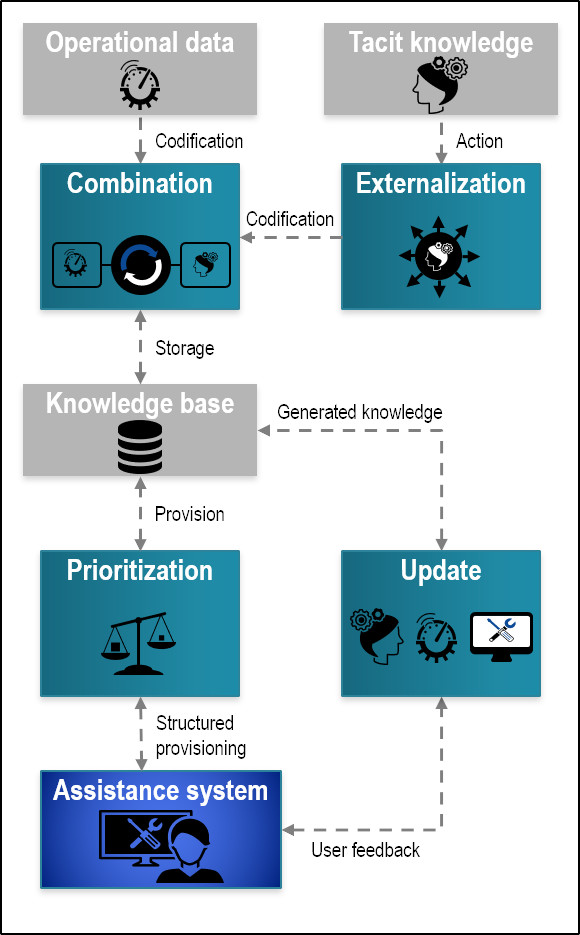Knowledge-based anomaly correction in continuous manufacturing processes

The increasing complexity of industrial production systems is challenging employees on the shopfloor in their daily work. Specific knowledge about manufacturing processes is often not available in explicit form but mainly as tacit knowledge of experienced shop-floor workers. A sound concept of knowledge externalization and intelligent methods for the provision of knowledge via an assistance system is being created to make this operational knowledge available. The methodological conceptualization and development of this assistance system includes four individual artifacts for externalizing, combining, prioritizing, and updating problem-solving knowledge. These are integrated and operationalized through a prototypical assistance system.
The scope of this research takes place in a complex continuous manufacturing scenario characterized by increased challenges compared to other manufacturing technologies. Based on the approach of the SECI model (Socialization, Externalization, Combination, Internalization by Nonaka and Takeuchi 2012), a systematic approach for capturing tacit problem-solving knowledge is first developed, representing the “Externalization” part. “Combination” comprises the linking of the externalized knowledge to specific information from explicitly available process documents. The specification of design rules and weighting indicators (“Prioritization”) ensures a user-related, comprehensible “Internalization” of the explicitly available problem-solving knowledge. “Update” addresses the user-related knowledge and takes place subsequently to ensure that the externalized problem-solving knowledge is not outdated. The combination and operationalization of the developed procedures result in a prototypical rule-based assistance system.

